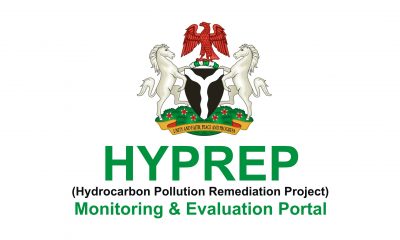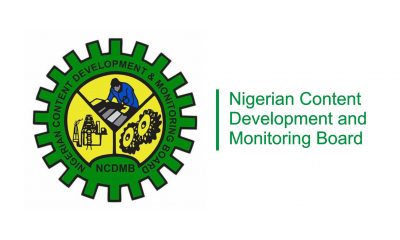Opinion
Poor Electricity: Prepaid Metering As Remedy
Unarguably, electricity customers have never gotten a fair deal from the distribution companies (DisCos) in Nigeria. Instead, outrageous bills have remained their lot. The service providers, every now and then, freely bombard the electricity consumers with outrageous bills even without services rendered. It doesn’t matter to them if the customer didn’t use electricity for months.
It, therefore, implies that presently, all that is required for the service providers to be hitting jackpots from their vulnerable customers is only to be connected to its grid. And failure to pay their arbitrary and outrageous bills subjects the customers to embarrassing disconnections. Still, even when on the disconnection, bills continue to accumulate for the customers.
In most cases, the bills are mischievously overestimated, aimed at putting customers in perpetual debt bondage such that they would always have outstanding bills to settle. The situation is more pathetic during festive seasons or when having personal engagements like parties, naming ceremonies, burial etc. Harassing the vulnerable customers over outstanding bills and demand for informal settlement becomes a viable option.
Sometimes, a room apartment or mini-shop gets as much as N25,000 as monthly consumption bill whether power was supplied or not. And where the customer struggled and paid all, he gets increment in the following bills such that outstanding bills must exist for selfish interests.
The ugly implication of the anomalies is that the arbitrary bills embolden the service providers to relax and remain unproductive since services rendered do not determine earnings but indiscriminate billing system. The glitch encourages laxity as customers are made to pay outrageous bills. It implies that where as little as feeder pillar in the transformer or other accessories require replacement, the service provider may not bother as its earnings are not determined by services rendered as would be the case under a prepaid metering system. On account of this, a whole community over time is abandoned in blackout as long as the DisCo wished despite the fact they ought to generate their incomes from services rendered to the communities. Unfortunately, only prepaid metered customers pay accurately for services rendered while DisCos overbearingly exploit helpless customers on estimation.
Prepaid metering system, therefore, provides an effective mechanism for boosting electricity supplies in the country as the device makes it absolute that only services rendered are paid for. As a matter of fact, the Federal Government has no business banning importation of generators into the country but to ensure that all electricity consumers are metered on pay-as-you-use basis.
The estimated billing system, whether outrageous or underestimated, constitutes threats to economic growth and productivity as it unconsciously provides avenues for exploitation. Every economy grows when citizens and services users pay accurately for services rendered to them. And essentially, it brings some discipline and accountability, thereby eliminates avoidable wastages.
For example, the number of prepaid metered customers that leave power running when away or not needed have drastically reduced if at all they still exist when comparable to those on estimation. The implication of prudently managing the use of electricity is that a lot of energy will be saved for those that actually have good need of them. From a practical study, all the electric lights and gadgets unnecessarily switched-on during the day when not useful are not connected to prepaid metering system.
It is, therefore, imperative that while the Federal Government continues in its onerous drive towards boosting sustainable power generation in the country, a viable mechanism to judiciously manage and checkmate the ones already generated for optimal use should be put in place through prepaid meters. Until all electricity consumers are regulated digitally through prepaid metering system, loss and waste of energy will continue unabated and supply remains inadequate.
The key benefits of the prepaid metering system are emphatically tripartite in nature. Prepaid metering system automatically creates a responsibility and efficiency chain starting from consumers – distribution – generation. For instance, aside making all consumers to strictly and accurately pay for services used, it automatically propels DisCos to go extra miles in improving their services to ensure steady supply knowing that no income is derived without services rendered.
Prepaid metering will also propel the DisCos to ensure at all times that not only adequate power is distributed but supervised to see that it is effectively delivered to customers end-points.
And finally, digital metering conserves energy against the usual wastages as only customers in need of electricity switch on to power for use. The present-day laxity among the distribution companies is because supply or not, majority are on estimated billing system. Hence, their monthly targets are spread to the vulnerable customers on estimated bills with threats of disconnections. The way out of the predicament is simple; compulsory prepaid metering system for all customers and its failure should be taken as economic sabotage.
Umegboro, a public affairs analyst, writes from Abuja.
Carl Umegboro
Opinion
Why Reduce Cut-Off Mark for C.O.E ?
Opinion
Welcome! Worthy Future For R/S
Opinion
Restoring Order, Delivering Good Governance
The political atmosphere in Rivers State has been anything but calm in 2025. Yet, a rare moment of unity was witnessed on Saturday, June 28, when Governor Siminalayi Fubara and Minister of the Federal Capital Territory, Chief Nyesom Wike, appeared side by side at the funeral of Elder Temple Omezurike Onuoha, Wike’s late uncle. What could have passed for a routine condolence visit evolved into a significant political statement—a symbolic show of reconciliation in a state bruised by deep political strife.
The funeral, attended by dignitaries from across the nation, was more than a moment of shared grief. It became the public reflection of a private peace accord reached earlier at the Presidential Villa in Abuja. There, President Bola Ahmed Tinubu brought together Governor Fubara, Minister Wike, the suspended Speaker of the Rivers State House of Assembly, Martin Amaewhule, and other lawmakers to chart a new path forward.
For Rivers people, that truce is a beacon of hope. But they are not content with photo opportunities and promises. What they demand now is the immediate lifting of the state of emergency declared in March 2025, and the unconditional reinstatement of Governor Fubara, Deputy Governor Dr. Ngozi Odu, and all suspended lawmakers. They insist on the restoration of their democratic mandate.
President Tinubu’s decision to suspend the entire structure of Rivers State’s elected leadership and appoint a sole administrator was a drastic response to a deepening political crisis. While it may have prevented a complete breakdown in governance, it also robbed the people of their voice. That silence must now end.
The administrator, retired naval chief Ibok-Ette Ibas, has managed a caretaker role. But Rivers State cannot thrive under unelected stewardship. Democracy must return—not partially, not symbolically, but fully. President Tinubu has to ensure that the people’s will, expressed through the ballot, is restored in word and deed.
Governor Fubara, who will complete his six-month suspension by September, was elected to serve the people of Rivers, not to be sidelined by political intrigues. His return should not be ceremonial. It should come with the full powers and authority vested in him by the constitution and the mandate of Rivers citizens.
The people’s frustration is understandable. At the heart of the political crisis was a power tussle between loyalists of Fubara and those of Wike. Institutions, particularly the State House of Assembly, became battlegrounds. Attempts were made to impeach Fubara. The situation deteriorated into a full-blown crisis, and governance was nearly brought to its knees.
But the tide must now turn. With the Senate’s approval of a record ?1.485 trillion budget for Rivers State for 2025, a new opportunity has emerged. This budget is not just a fiscal document—it is a blueprint for transformation, allocating ?1.077 trillion for capital projects alone. Yet, without the governor’s reinstatement, its execution remains in doubt.
It is Governor Fubara, and only him, who possesses the people’s mandate to execute this ambitious budget. It is time for him to return to duty with vigor, responsibility, and a renewed sense of urgency. The people expect delivery—on roads, hospitals, schools, and job creation.
Rivers civil servants, recovering from neglect and under appreciation, should also continue to be a top priority. Fubara should continue to ensure timely payment of salaries, address pension issues, and create a more effective, motivated public workforce. This is how governance becomes real in people’s lives.
The “Rivers First” mantra with which Fubara campaigned is now being tested. That slogan should become policy. It must inform every appointment, every contract, every budget decision, and every reform. It must reflect the needs and aspirations of the ordinary Rivers person—not political patrons or vested interests.
Beyond infrastructure and administration, political healing is essential. Governor Fubara and Minister Wike must go beyond temporary peace. They should actively unite their camps and followers to form one strong political family. The future of Rivers cannot be built on division.
Political appointments, both at the Federal and State levels, must reflect a spirit of fairness, tolerance, and inclusivity. The days of political vendettas and exclusive lists must end. Every ethnic group, every gender, and every generation must feel included in the new Rivers project.
Rivers is too diverse to be governed by one faction. Lasting peace can only be built on concessions, maturity, and equity. The people are watching to see if the peace deal will lead to deeper understanding or simply paper over cracks in an already fragile political arrangement.
Wike, now a national figure as Minister of the FCT, has a responsibility to rise above the local fray and support the development of Rivers State. His influence should bring federal attention and investment to the state, not political interference or division.
Likewise, Fubara should lead with restraint, humility, and a focus on service delivery. His return should not be marked by revenge or political purges but by inclusive leadership that welcomes even former adversaries into the process of rebuilding the state.
“The people are no longer interested in power struggles. They want light in their streets, drugs in their hospitals, teachers in their classrooms, and jobs for their children. The politics of ego and entitlement have to give way to governance with purpose.
The appearance of both leaders at the funeral was a glimpse of what unity could look like. That moment should now evolve into a movement-one that prioritizes Rivers State over every personal ambition. Let it be the beginning of true reconciliation and progress.
As September draws near, the Federal government should act decisively to end the state of emergency and reinstate all suspended officials. Rivers State must return to constitutional order and normal democratic processes. This is the minimum requirement of good governance.
The crisis in Rivers has dragged on for too long. The truce is a step forward, but much more is needed. Reinstating Governor Fubara, implementing the ?1.485 trillion budget, and uniting political factions are now the urgent tasks ahead. Rivers people have suffered enough. It is time to restore leadership, rebuild trust, and finally put Rivers first.
By: Amieyeofori Ibim
Amieyeofori Ibim is former Editor of The Tide Newspapers, political analyst and public affairs commentator
-
Politics2 days ago
Natasha’s Counsel Writes Senate Over Court Judgment
-
Nation2 days ago
NIPR Practitioners Urge To Go Beyond Traditional Media Relations To Strategic Leadership Functions
-

 Business2 days ago
Business2 days agoReplace Nipa Palms With Mangroove In Ogoni, Group Urges FG, HYPREP
-
News1 day ago
South-South contributes N34trn to Nigeria’s economy in 2024 – Institute
-
Niger Delta2 days ago
Police Rescue Kidnap Victim, Recover Pistol In A’Ibom
-

 Politics2 days ago
Politics2 days agoINEC Trains Political Parties Officials On ICNP Use Ahead By-Elections
-

 Business2 days ago
Business2 days agoIndustry Leaders Defend Local Content, … Rally Behind NCDMB
-

 Business1 day ago
Business1 day agoNCDMB, Dangote Refinery Unveil JTC On Deepening Local Content

